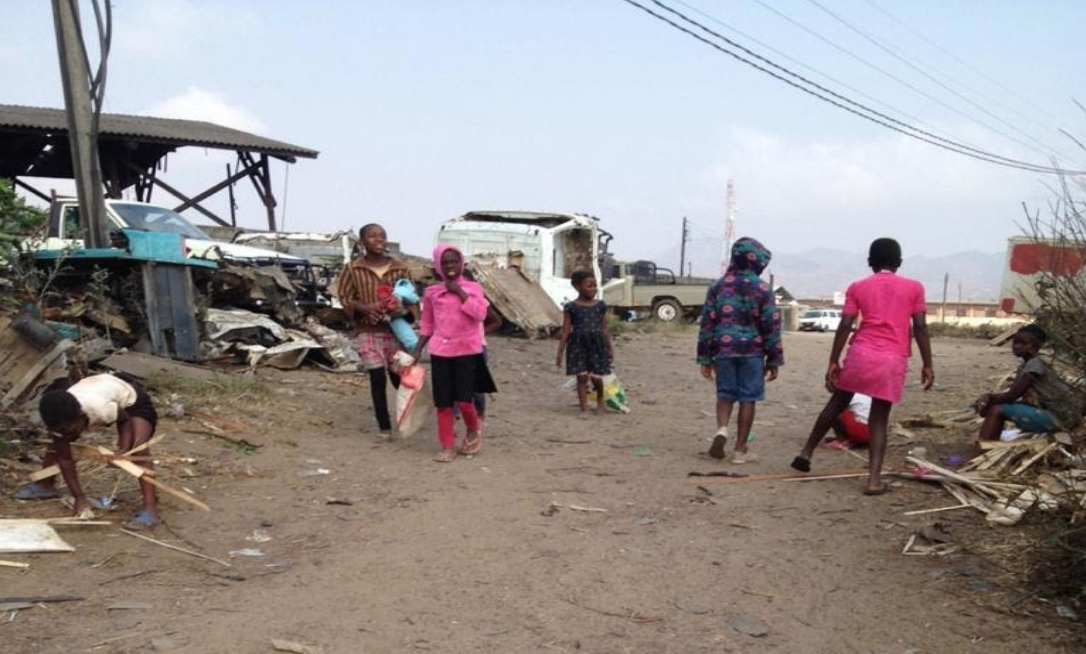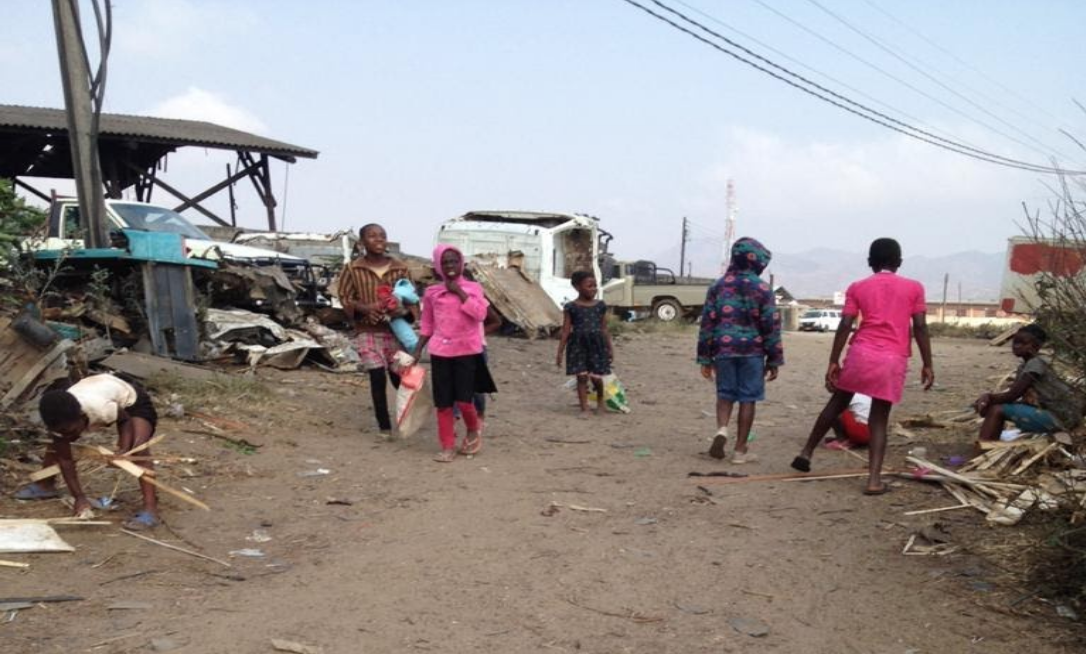The Multi-Talented Makerspace Nook

Enabling the Sakubva community in Zimbabwe to reimagine its future.

"None of my friends believe that we have a future or will be able to live a normal life here."
This is what one youth told us about how they feel about living in Sakubva. The township is one of the oldest and poorest parts of Mutare, the provincial city of Manicaland, which is located in the Eastern Highlands of Zimbabwe. Even though Sakubva once flourished with large-scale industries, poverty and unemployment have taken their toll on the township, and this has been exacerbated by the ongoing domestic economic crisis in Zimbabwe as well as the global COVID-19 pandemic.
The Multi-Talented Makerspace (MTM) Nook sets out to change the feeling (and reality) of hopelessness and desperation among youth and other community members living in Sakubva, described above so vividly. Nooks are ‘self designed learning centers’ that enable marginalised community members to co-design their own learning and education.
There is a dire need to create innovative responses to the manifold and ever-increasing challenges the local community is facing, and the MTM Nook can lead the way through its unique model of community self-determination and grassroots empowerment. No longer willing to wait for top-down solutions, the project explores the radical change that could be implemented in Sakubva by simply listening to, and ultimately realising, the ideas and dreams of the community itself – the whole community, including women, young people, and the most marginalized.
What if we designed, developed and implemented our own education, which then translated into cooperative economic models? What if we had a space where we could conduct our own research, brainstorm inventions and create together? Equipped with tools, technology, laptops with internet access, and led by a local facilitator experienced in the self-designed learning model, The MTM Nook is here to provide the platform, freedom, encouragement and support needed for the community to find out.
The Problem
Zimbabwe is currently facing high unemployment, high inflation and high substance abuse, and this affects the most marginalised communities in the country, such as Sakubva Mutare. These factors have led to many families experiencing a high rate of poverty, leaving many people with a feeling of hopelessness and desperation as they struggle to even put food on their tables.
One of the main reasons is low access to quality education, which gives people the relevant skills and knowledge to create economic opportunities in local communities. This harsh reality has a very negative mental effect, taking away people’s desire to be creative, inventive, and innovative. With their attention focused on the desperate state of the country and struggling to live a dignified life, many simply abandon their dreams.
In Sakubva, those who can't manage to make a living off of neighboring Mozambique's second-hand clothing industry often resort to illegal activities for survival. The recent Coronavirus outbreak has caused most small- and medium-scale entrepreneurs to cease economic activity, and the vegetable markets, which are the biggest in the whole region, have been closed. Instead, people are now resorting to street vending in illegal locations, thereby running the risk of being detained by the police.
Young boys and girls are living in the streets, some of them working as touts and many of them abusing drugs in order to escape the harsh reality of their lives. Some have even resorted to robbery and theft as a way of survival. Young girls are turning to prostitution at an early age, putting them at risk of contracting sexual transmitted diseases. Moreover, the behavior of most of their parents and other adults in the community perpetuates the cycle – children simply have no role models leading healthy, inspiring lives. The adult population frequents "hustling corners", where they engage in gambling, drug abuse and other illegal activities. Young people find themselves caught in this vicious cycle, continuously exposed to prostitution, robbery and violence, and their local community seems to offer no solutions.
How can you help?
Consider supporting this marginalized community to access technology, tools, resources, and materials, so they can design their own community-based education. On the Multi-Talented Makerspace - Open Collective you can donate and also see how your donations are being spent.
What will MTM do with your support?
Apart from the legal set up expenses, the funds will be used for Nook operations and to buy the required tools & equipment, as listed in the MTM start up budget. If you have any of the needed equipment, you can also donate in-kind.
Our vision is to put learning back into people’s hands, thereby providing them with the opportunity to acquire relevant skills and knowledge and contribute to economic prosperity in their local community. We achieve this by creating a community-based learning platform. To nurture entrepreneurship and local economic opportunities based on the skills and knowledge developed in and from the Nook, we also support promising projects with start-up funding.
This model of self-designed education results in the active co-production of a variety of knowledge and skills that are harnessed by people to co-create meaningful lives alongside their local community, rather than moving to the big cities to find any kind of job at the lowest ranks of the ladder. The Nook, therefore, is a space for sustainable learning, rooted in the community where they are.
Equipped with various resources (e.g. recycled waste materials, hand tools, electronics, etc) and with laptops and internet access, the Nook provides a free, open, easily accessible and inspiring learning environment for everyone and anyone in the given local community. MTM Nook focuses on the idea of creating a community of learners that help and support each other and tap into each other’s skills and talents. This initiative therefore is aimed at inciting what we can call ‘the radical imagination’ of learners – everyone has skills and talents and possesses knowledge, and everyone can learn.
Once this radical imagination starts to take hold, we envision for MTM Nook to develop further from a ‘learning space’ into a ‘community space’ where people meet each other, learn with each other, discuss with each other, dream with each other and come together to address issues the local community is facing and solve them in creative, innovative ways, or to come up with new initiatives and projects to improve their community and enhance community life in various ways based on the many newly acquired perspectives, ideas, knowledge and skills. Ideally, nooks are then ultimately entirely run by local communities who are now able to identify, actively tap into, and co-create local knowledge sources, looking at their community and its assets from a perspective of abundance (of skills, resources, knowledges, ideas, perspectives, opportunities, possibilities…) instead of one of scarcity.
The outcomes are broken down over a period of 5 years. The MTM Nook is a permanent space, but for now we will focus on the 5 years it will take the Nook to evolve, from inception to maturity. The broad breakdown consists of three phases:
a. Liberation (Short-term 12 months)
A facilitated phase of skill-building, exploration and self-reflection which helps new Learners to free themselves from societal pressures and expectations. Learners will be able to identify and articulate their own needs, interests, dreams and aspirations and build individual, basic projects around them.
The outcomes will be:
- Provision of new knowledge, information, and technology.
- An inspired and empowered community group that thinks about and aspires to be agents of change in their own space of innovation, thereby facilitating solutions for social issues in the region.
- Creating and building an inclusive community to promote lasting relationships.
- Introducing opportunities for participants to develop both technical and intellectual skills through various projects, the construction of equipment and critical thinking exercises.
b. Transformation (Medium-term 36 months)
A phase in which Learners start systematically pursuing their own more complex and advanced learning goals. Coming together in groups that share similar interests, Learners increasingly develop new ideas and innovations that have the potential to improve and transform community life.
The outcomes will be:
- Learning to collaborate and working with groups to solve problems and address issues affecting their communities.
- The Nook as a focal point of innovation and problem-solving in and for the wider community.
- Communities living and working without fear, helping each other to grow together.
- A community-developed, collaborative way of learning that supports the integration of both learners and locals in Sakubva.
c. Independence (Long-term 60 months)
A phase that marks a new beginning for Learners. They are able to take their skills and learning out of the Nook and into the community, start their own initiatives and create independent livelihoods for themselves and others.
- Participants start to exchange economic value, pool resources and form joint-ventures in decentralized ways that were impossible before blockchains. They also agree on how risks and rewards should be distributed in the future.
- Learners become active creators of their own lives.
- Learners create new livelihood opportunities that lead to financial independence.
- Previous Learners become facilitators of self-designed learning, helping new Learners and starting their own initiatives.
- The MTM Nook becomes a place of inspiration where people can develop applicable, replicable and adaptable methods of innovation which can be shared and reapplied by innovators and inventors in other areas.
The MTM Nook is also a DisCO Lab (Distributed Cooperative Organization Laboratory), following a set of organizational tools and processes designed for groups that work together according to cooperative, commons-oriented, and feminist economic principles. As part of the DisCO Lab, the MTM Nook will receive training and support enabling participants to avoid the competitive and extractive behaviours of the market, and instead be rewarded for their labour in a way that also allows them to commit to their shared social values.
Hopes are high that the locals will get involved in shaping Zimbabwe’s digital involvement in the future and benefit from the introduction of new DisCO digital technologies in terms of transparency, better value tracking, ethical business planning, commitment, daily rhythms, workflow systems, and creating commons to benefit the community, if given a platform. There is potential for digitalization start-ups like MTM to offer new commons-oriented digital solutions for the country and the region, because the MTM's approach is based on African values, such as sharing and community orientation (see Ubuntu: Applying African Philosophy in Building Community).
Thank you for your support! Donate to The Multi-Talented Makerspace Nook here.

